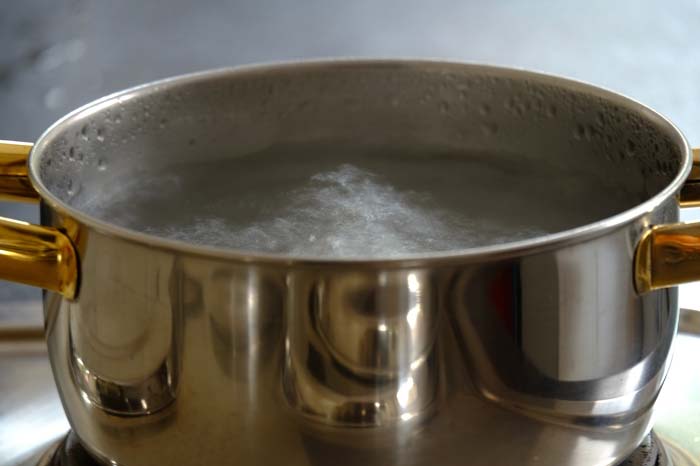
When water from the tap is brought to a boil, it eliminates virtually all of the bacteria and germs that are present in the water. On the other hand, due to the fact that it incorporates its own constraints, the water cannot be totally clean. Despite the fact that boiling water is the most straightforward method, there are a number of drawbacks to using it. Considering these drawbacks, it is clear that purchasing water purifiers or filters for your home is the superior choice if you want drinking water that is free of contaminants.
Numerous innovations in water purification technology have led to reverse osmosis water purifiers becoming the most popular and secure option for water filtration systems.
What Does Water Boiling Remove?
The majority of people use this technique to purify water. It is labor- and energy-intensive, yet it doesn’t need electricity. Because water must be boiled for a minimum of fifteen minutes, the process is both time-consuming and costly. While this procedure is straightforward, it does require some effort and time. Although all microbes in water will die after boiling, the molecules of water itself will remain unharmed.
While microbes can destroy chemical pollutants in water, these contaminants are not always eliminated. These compounds remain in the water even after boiling has altered them. These substances have the potential to enter our food supply and pose health risks.
What are the drawbacks of boiling water?
Boiling water may not be the best way to purify it if it contains nitrates, harmful metals, total dissolved solids, or compounds (such as solvents, mercury, lead, pesticides, asbestos, etc.). Vaporizing potentially dangerous pollutants may be beyond the scope of boiling. Additionally, it requires electricity to boil water, which isn’t always readily available.
Reverse Osmosis
This process of water filtration involves filtering out any contaminants in the solution by means of a membrane. It doesn’t take much energy or time, and it doesn’t need electricity. It rapidly dissolves any contaminants in the water. This makes it an excellent solvent for cleaning water. Additionally, it is extremely effective in removing pollutants from water and does not harm water quality in any way. The principle of RO is to force water molecules to pass through a semipermeable barrier.
The process involves placing the membrane in a pressure chamber and then forcing pressurized water through it. This process separates the water into its fresh and salty parts. After that, a second membrane divides the components, and they’re each sent to their container or tank. The membrane is often quite durable, and you can reuse it multiple times. Purified water is of the highest grade. Purified water is far safer to drink than untreated water.
Instead of boiling water, why not use a reverse-osmosis water purifier?
There are many benefits to reverse osmosis water, but before you install one in your home, there are a few drawbacks to think about. There are benefits and drawbacks to boiling water as well. These include.
- Better-tasting water
Unlike boiling, reverse osmosis effectively gets rid of unpleasant smells and tastes in water. The taste of reverse osmosis water is unremarkable because of how pure it is.
- Producing wastewater
There is a lot of wastewater from reverse osmosis systems, whereas boiling produces almost no wastewater but is more expensive in terms of energy.
- Effective elimination of pollutants
Compared to other methods, reverse osmosis is much better at removing pollutants effectively. Boiling won’t be able to remove the majority of pollutants. However, it does kill bacteria and remove some volatile chemicals.
- Exceptionally effective in eliminating pathogens that cause disease
Boiling water can effectively neutralize the microorganisms that cause diseases. Reverse osmosis water is effective, but only if all the filters are in good working order and you analyze the feed water to determine whether any more filters are necessary.
- Simple and convenient
A reverse-osmosis system is more practical and hassle-free. This is because it can either filter water as needed or store it in a tank. You need to prepare ahead of time to boil water so that it can be cooled for drinking.
- Inexpensive and with low initial costs
While reverse osmosis has cheaper initial costs, the electrical output from boiling water could make it expensive in the long run.
- Total dissolved solids
When it comes to removing total dissolved solids, reverse osmosis systems are far superior to boiling. The total dissolved solids measurement is a good indicator of the water’s aesthetics.
- Easy to install and maintain
Where it’s used, both setting up and maintaining a reverse osmosis system is a breeze. Even if you have to cool the water before using it, boiling water is very simple to set up.
Conclusion
Boiling water makes it safer to drink by killing any hazardous organic organisms that may be present, but it doesn’t necessarily make the water healthy.
Many RO systems also filter out dangerous organic organisms in the water using ultraviolet light and filtration. For this reason, using one of these systems to purify your drinking water is a fantastic idea. While boiling potentially unsafe water does the trick, an RO drinking water system will produce water that is both pure and more dependable.
